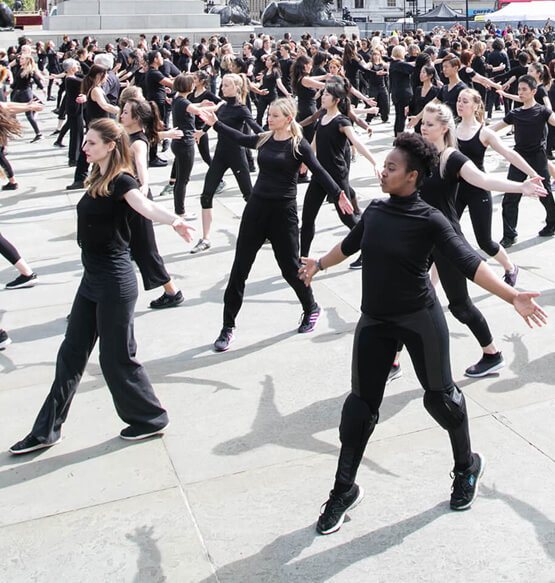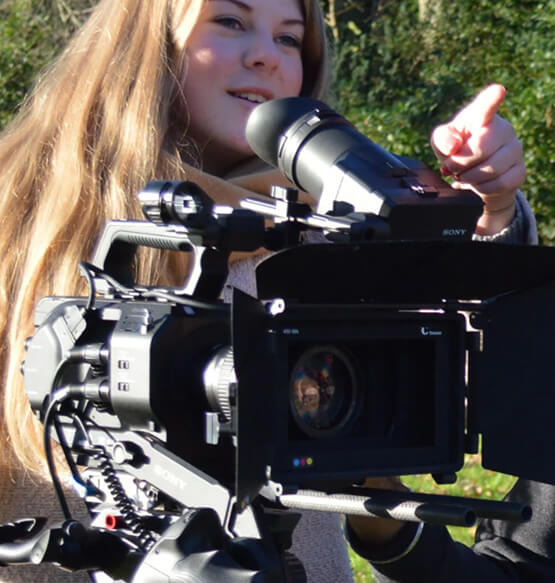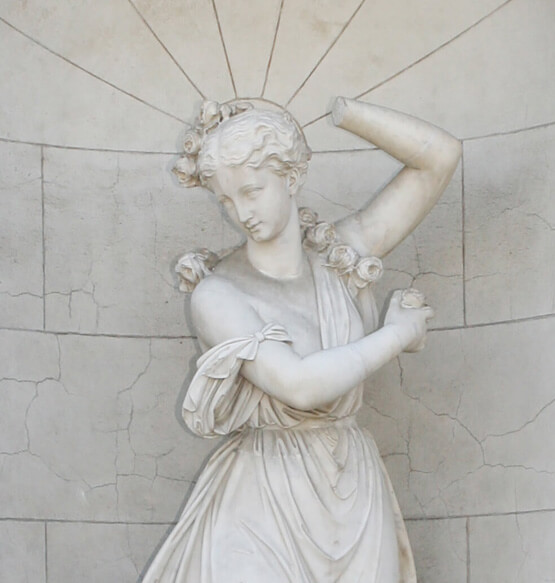Duration:
2 years (part-time)
Number of credits:
MA: 180
PGDip: 120
Start date(s):
September 2026
Discover a pioneering programme that has shaped the study of children’s literature for over twenty-five years.
First launched in 1999, the MA Children’s Literature (Distance Learning) was the first of its kind in the UK and remains one of the most respected and established courses in the field. Designed for part-time study and flexible learning, it offers you the freedom to work from home while joining a thriving international community.
You will explore the rich and diverse world of texts written for young readers, examining how literature shapes and challenges ideas about childhood.
Through innovative critical approaches, including postcolonial theory, psychoanalysis and reader response criticism, you will engage with a wide range of material such as fairy tales, picture books, short stories, and novels.
This programme invites you to think about children’s literature in fresh and exciting ways, guided by leading specialists in a department with a global reputation for excellence.
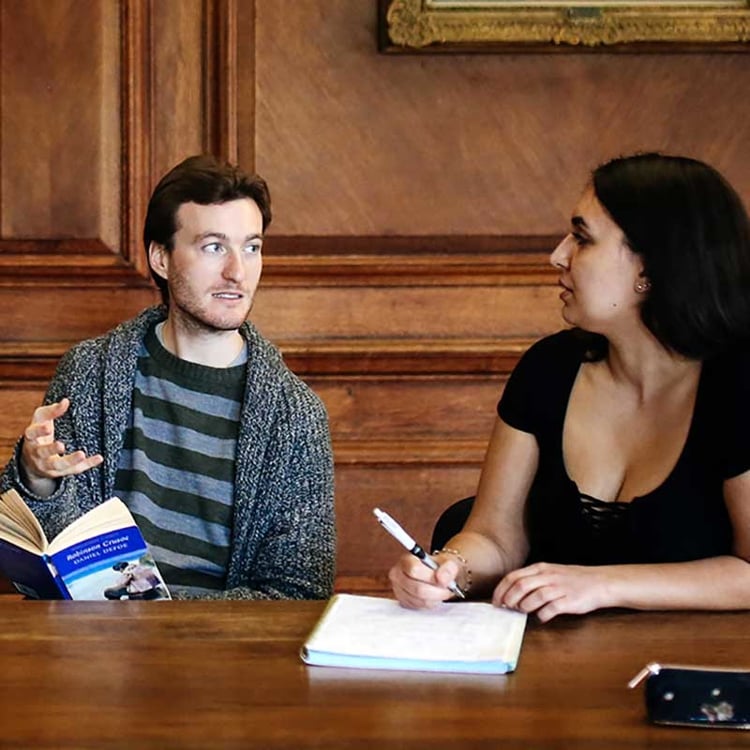
Did you know?
As a distance learner, you will join the National Community for Research in Children's Literature and benefit from personalised academic support, regular contact with tutors, specialist e-learning resources, and extensive digital access to the University Library’s Children’s Literature Collection, including thousands of critical texts and leading academic journals.
Modules
Module overview:
This module introduces you to a range of critical and theoretical approaches and demonstrates how these help in furthering an understanding of children’s literature and childhood studies.
You will learn about key ideas that have shaped literary criticism in general, such as structuralism, Marxist theory, identity politics and intersectionality (including queer theories and disability studies), and postcolonial theory, plus those that have a particular resonance for children’s literature studies, such as hermeneutics and reader-response theory, theories of power, and the carnivalesque. These wide-ranging theories encourage critical thinking about narrative, ideological, political, historical, and social discourse at work in children’s books. Indeed, CTP provides you with a grounding in some of the best and most provocative critical material in the international field of children’s literature. Through cross-referencing between topics, it also encourages comparison, critique, and a sense of the history and global reach of the discipline. You will become familiar with some of the philosophical foundations of the study of children’s literature and will develop a set of critical tools with which to tackle your own readings of texts aimed at young readers. You will be equipped with the tools necessary to identify mechanisms in books for young people that reinforce and/or challenge prejudicial and non-inclusive attitudes, behaviours and practice—such tools are crucial to the consideration of this formative field of literature. Throughout the module, you will encounter and analyse a variety of fairytales, short-form fiction, and picturebooks selected from a culturally diverse range of practitioners across the field of children’s literature and its scholarship.
Teaching and learning:
You’ll learn through large group forum discussion/learning, small group forum discussion, live seminars (optional/recorded), long-form recorded lectures, pop-up briefings, individual tutorials, draft feedback sessions, and lecture/syllabus support materials.
Assessment:
This module will be assessed by two summative assessments: 1 x critical annotation (summative 30%) and 1 x theoretical essay (summative 70%).
Module overview:
Ecology, Environment, and Youth Culture is a politically engaged and socially committed module that traces the history of ecocritical developments in children’s literature and youth culture and engages with the environmental concerns of young people in the 21st Century. Via a range of novels, visual texts, poetry, nature writing, and ecocriticism, you will explore longstanding links between environmental discourse, youth cultures, and constructions of childhood. The timely relevance of the Eco Module is confirmed by recent developments in youth activism that respond to environmental crises or climate change and emphasize experiential and imagined correspondences between childhood, young adulthood, and the natural world. You will participate in an exciting youth outreach task involving environmental NGOs, such as the RSPB, or the WWF.
Teaching and learning:
You’ll learn through large group forum discussion/learning, small group forum discussion, live seminars (optional/recorded), research outreach task (summative), long-form recorded lectures, pop-up briefings, individual tutorials, coursework feedback sessions, and lecture/syllabus support materials.
Assessment:
This module will be assessed by 1 x Eco research initiative (summative 40%) and 1 x research portfolio (summative 60%).
Module overview:
Reading and Writing Genre Fictions for Young Readers introduces you to some of the most important genres in the field of children’s and Young Adult literature – such as verse novels; web comics and graphic novels; fan fiction; and road trip fiction, to name a few – providing you with the opportunity to interrogate their literary, social, cultural, political, and historical contexts. This module will be structured on a pattern of alternating “critical” and “creative” weeks, furnishing you with the knowledge of young reader’s genre fictions while also offering them the opportunity to undertake your own creative writing and critical reflection. The “critical” weeks in the module will feature a 1-hour asynchronous lecture and 3-hour forum activities. Simultaneously, the module offers you the opportunity to develop your own creative practice in writing for young readers, by focusing on your implied readers; character and plot; narrative relationships in different genres; ideology and didacticism; and creating a short story premise. “Creative” weeks will involve 4 hours of writing, editing, and providing peer feedback. Each week features a one-hour-long “Students as Partners in Assessment” task in which the two different pathways (a Critical Essay OR a Creative Portfolio) are explored in relation to marking criteria and the development of your skills. These asynchronous tasks will provide you with the opportunity to get feedback and guidance. An extra half hour every week will be devoted to General Forums in which you will be able to discuss the module’s learning with your tutors and with each other.
Teaching and learning:
You’ll learn through large group forum discussion/learning, small group forum discussion, live seminars (optional/recorded), long-form recorded lectures, pop-up briefings, individual tutorials, draft feedback sessions, and lecture/syllabus support materials.
Assessment:
This module will be assessed through two critical essays or a creative portfolio.
Module overview:
This module outlines major developments in children’s literature from the classic period (BC) of Aesop’s Fables, through the late fifteenth century when printing was fully established in the UK, and up to the early 1960s, by which time the field of children’s literature was flourishing. You will learn about some of the economic, technological, marketing, and ideological forces that affected the production of literature for children across these historical and developmental periods. You will be introduced to and explore a range of literary forms and genres associated with the social and historical evolution of youth and print culture. This module takes a revisionist approach to early developments in children’s literature. For example, it challenges assumptions about the nature of women’s writing for children and makes space for ‘invisible’ storytellers across a diverse cultural range of materials for young people who have not been the focus of popular histories of children’s literature. The syllabus includes some classic texts produced for children or adapted for them, while also introducing a range of popular, ephemeral, and lesser-known material that children in Britain may have encountered as the field/market for young readers developed.
Teaching and learning:
You’ll learn through large group forum discussion/learning, small group forum discussion, live seminars (optional/recorded), creative prologue task (summative), long-form recorded lectures, pop-up briefings, individual tutorials, draft coursework feedback sessions and lecture/syllabus support materials.
Assessment:
This module will be assessed by a creative prologue (30%) and a research portfolio (70%). The research portfolio’ allows you to write a critical essay, or a series of blog posts, or a piece of creative writing and critical reflection.
Module overview:
This module prepares you to devise and produce independent research and/or creative-practice-based projects. The module achieves this using two distinct but joined strands: a spring-semester unit on archives, and the summer-semester dissertation element.
This module bridges creative and critical approaches to literary studies, by fostering independent research skills in preparation for the dissertation, and by providing you with opportunities to explore potential professions or prepare for further academic study.
Teaching and learning:
You’ll learn through online lectures, seminars and independent exercises, guided exercises to develop practical skills, archive visits, individual tutorials and feedback on research and drafts.
Assessment:
This module will be assessed through a dissertation proposal form, an archive portfolio and a dissertation.
These are the current planned modules on this course and may be subject to change.
“During my time at Roehampton as a distance learner, I was able to build great relationships with other long-distance learners and that was one of the best aspects of studying for this MA.
"I made friendships with like-minded people from across the UK and wider parts of the world. We built an online community of support which has extended beyond our studies - we are still in touch!
"In terms of the MA itself, learning from our tutors was one of my favourite aspects of my time at Roehampton. Their enthusiasm, expertise, and encouragement was really motivating and I thoroughly enjoyed our online seminars. They made us feel very much a part of Roehampton even though we didn't set foot on campus.”
Michelle Thresher, MA Children’s Literature Graduate, 2022
Careers
Graduates of our MA Children’s Literature programme go on to make a real impact in the field of children’s literature and beyond.
On completing the programme, you will be able to pursue a number of rewarding careers in teaching, writing, children’s publishing, librarianship, arts management, and editing.
Our graduates have gone on to work at leading organisations such as Hachette UK, the National Literacy Agency, Wimbledon Book Festival, Birmingham Rep, SAMPAD, the Red Earth Collective, Create Central, Let’s Talk Reading, and Homestart, as well as working in children’s libraries, schools, and in children’s publishing.
This programme equips you with the expertise, creativity, and confidence to build a meaningful and influential career in the world of children’s literature.
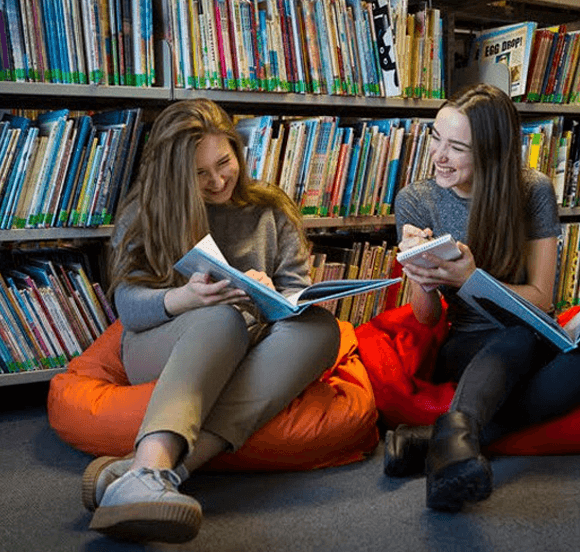
Learning & assessment
How you'll learn
You will study through a flexible blend of asynchronous and optional live lectures and seminars, personalised tutorials, and independent study, allowing you to learn at your own pace from anywhere in the world. Digital learning environments give you access to video lectures, e-learning portfolios, and Roehampton’s extensive digital archives.
You will engage with fellow students through discussion boards and online seminars, developing ideas collaboratively while receiving guidance and feedback from tutors. Teaching includes a variety of formats, such as large and small group discussions, pop-up briefings, recorded lectures, and individual tutorials, all designed to support your learning and professional development.
How you'll be assessed
Assessment on this programme is varied, practice-focused, and designed to give you choice in how you demonstrate your learning. You will complete critical essays, annotations, presentations, research and creative portfolios, archive projects, and a dissertation, with options to take either critical or creative routes in many assessments.
Formative assessments at key points allow you to receive feedback and track your progress, while all assessments can be adapted to suit individual learning needs. Draft submissions and in-line feedback support original work and help you develop your ideas confidently, ensuring your assessments are both authentic and aligned with professional practice.
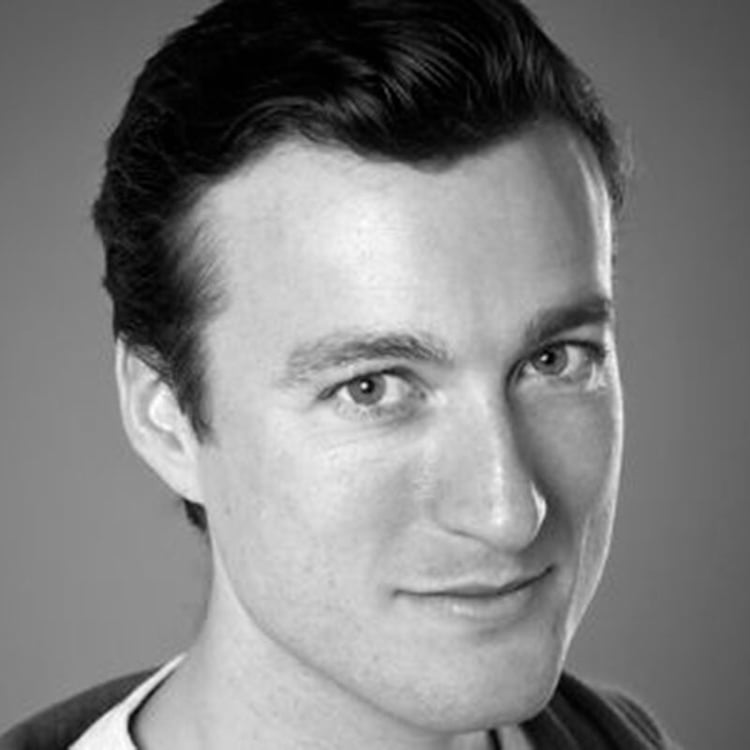
Dr Ian Kinane
My name is Ian Kinane and I am the programme leader of the MA in Children’ Literature by distance learning. I am your first port of call for any programme-level academic or pastoral enquiries. My primary research interests in children’s literature include adventure narratives and crossover robinsonade fictions from the 18th century to the present day, and I have published two books on these topics, Theorising Desert Islands: Contemporary Robinsonade Narratives (2016) and Didactics and the Modern Robinsonade (2019). My current research explores ecocritical robinsonades, and I am also editing a collection of essays on the British children’s author Ian Serraillier. I have taught widely across the programme and currently convene the dissertation module.
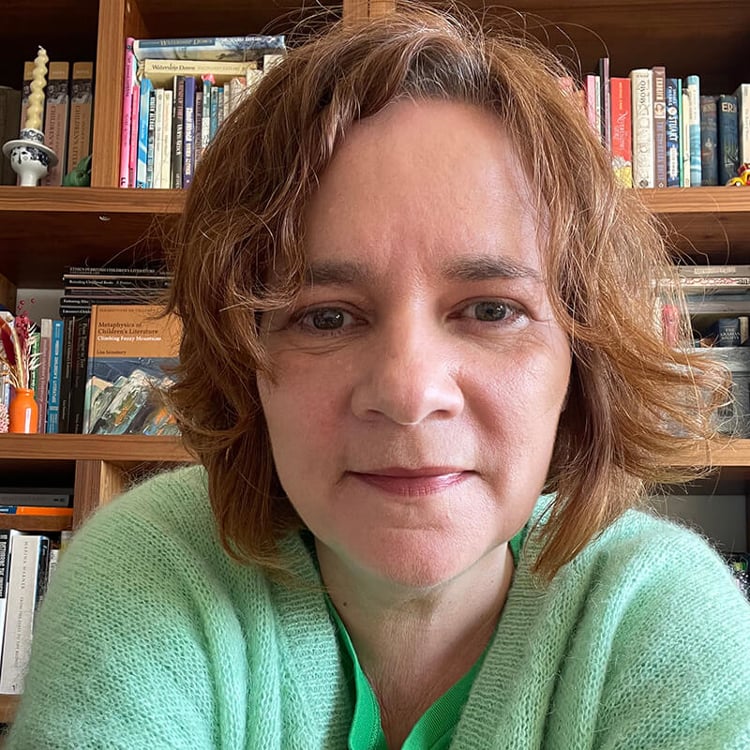
Dr. Lisa Sainsbury
Hello! I am Lisa Sainsbury, Associate Professor of Children’s Literature in the School of Arts Humanities and Social Sciences. I teach on aspects of YA, childhood studies, and creative writing for young readers at all levels of study. I also am the Research Degrees Convener for the School of Arts, Humanities, and Social Sciences. I am Series Editor for Bloomsbury’s Perspectives on Children’s Literature and Chair of the National Community of Researchers in Children’s Literature (NCRCL). My ongoing research focusses on the philosophical remit of children’s literature, as explored in two of my books: Ethics and British Children’s Literature: Unexamined Life (2013) and Metaphysics of Children’s Literature: Climbing Fuzzy Mountains (2021).
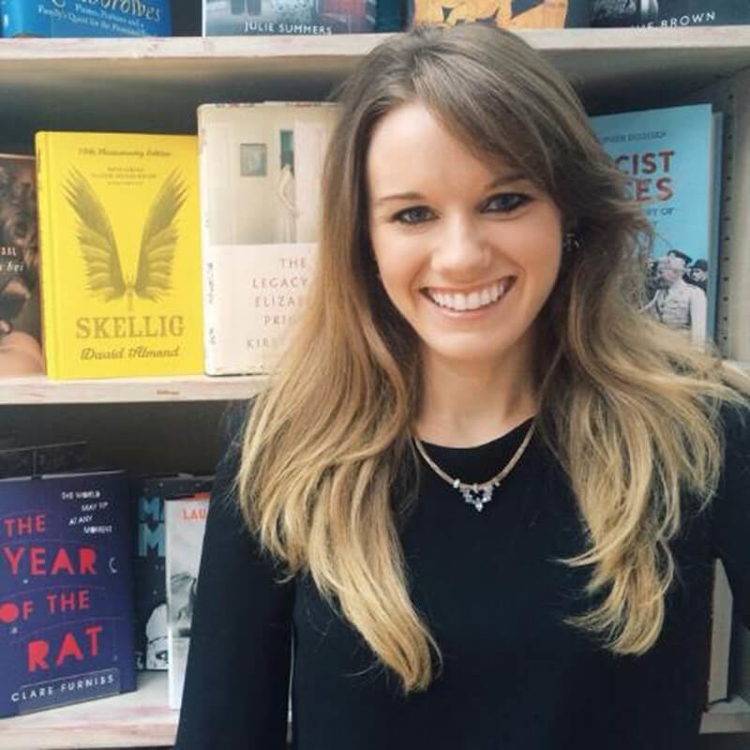
Dr. Amy Waite
Hi there, I’m Amy Waite and I teach on the MA in Children’s Literature. My research interests span both critical and creative aspects of children’s literature. On the critical side, I am interested in exploring posthuman encounters in YA fiction - be it encounters with AI, curious creatures, or bacteria. Meanwhile, on the creative side, I love writing magical middle-grade adventure stories. For my children’s fiction, I am represented by the wonderful Hellie Ogden at WME Books.
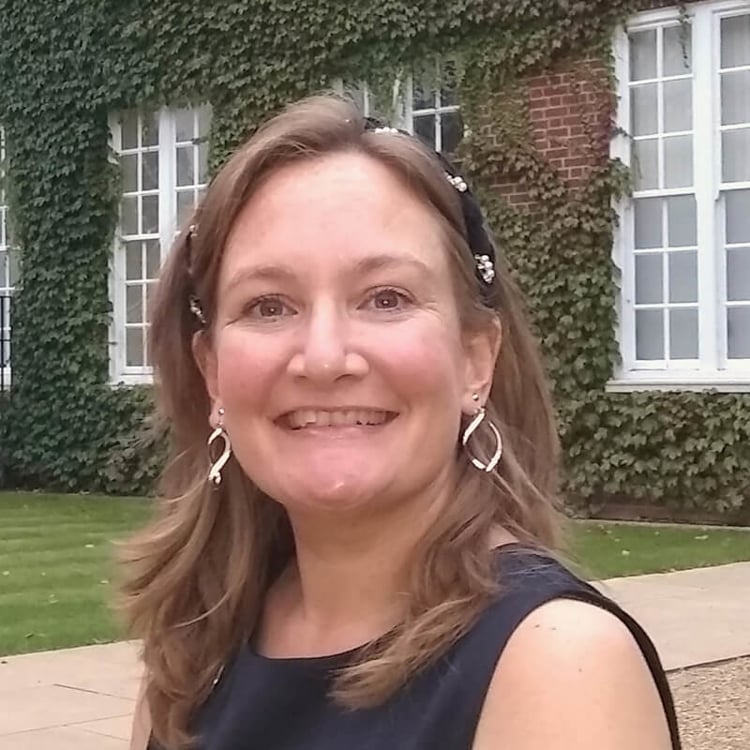
Dr Mary Shannon
I teach historic children's literature and visual texts, with an emphasis on 19th century illustrated fiction and print culture (as that's a key research area for me). My most recent book - Billy Waters Is Dancing (2024) - covered race and childhood in nineteenth-century popular culture. I enjoy supervising critical MA Dissertations in these areas, and MA creative projects which involve historical fiction, time-slip, and/or visual elements. I can sometimes be found doing guest lectures on the Archives core module as I love a good archive: the dustier the better.
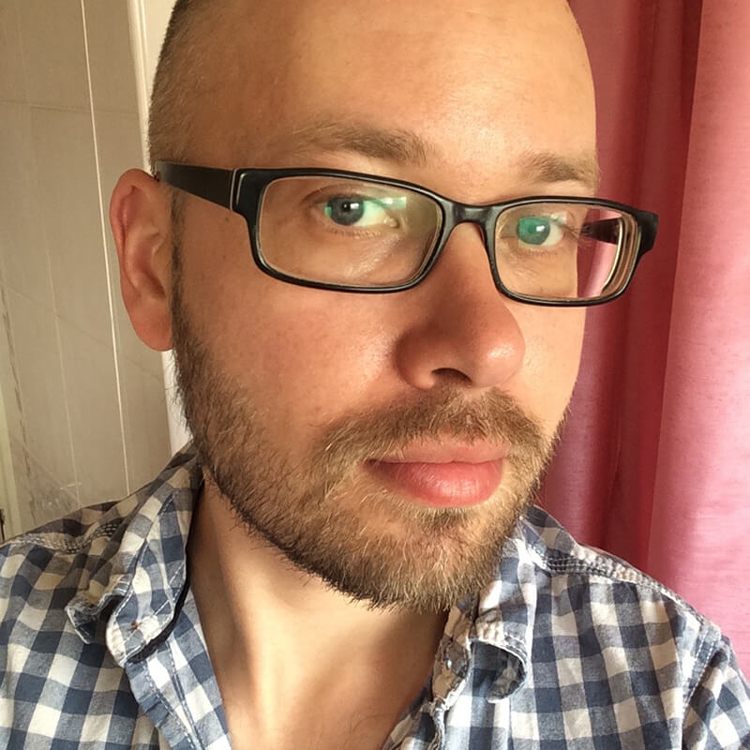
Dr Alberto Fernandez-Carbajal
I teach the module “Writing for Young Readers” on the MA in Children's Literature. My research is placed at the intersection of colonial, postcolonial, queer, and diaspora studies, with a current focus on the notion of trans*versality and interfaith approaches to queerness in contemporary global literatures. I am also a published poet and fiction writer. When I’m not travelling up and down the country, I can be found playing the ukulele and the Appalachian dulcimer, hosting karaoke nights, and DJing an eclectic mix of electroswing, traditional and electronic Latin music, Exotica, and other musical rarities.

Dr Alexander Bubb
I'm Alex! My specialist area is the 19th Century and I've written extensively about how canonical texts from Asia, like the Arabian Nights, the Ramayana and the Shahnameh were translated for young audiences in Victorian Britain.
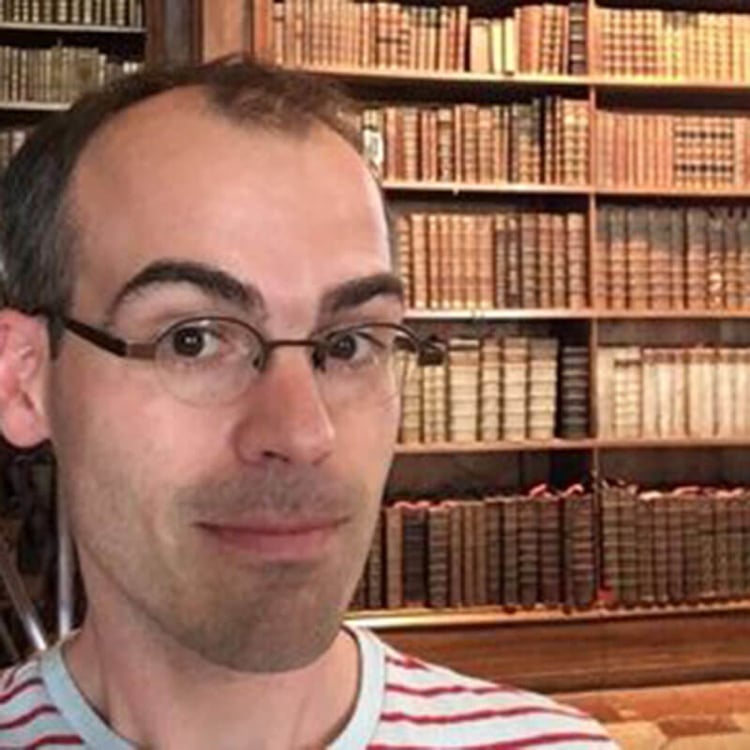
Dr Dustin Frazier Wood
I designed and co-teach the module that helps students prepare for their dissertation by engaging with a range of new and familiar sources on their chosen topics. Most of my research focuses on the history of museums and collections, and on the reception of medieval culture from the early modern period through to modern fantasy. My work is all about inter-disciplinary approaches and primary sources: if you're interested in getting your hands dirty in museums, libraries, archives or cultural sites, we'll almost certainly cross paths.
“I had always liked children’s literature and wanted to study it in depth. As a Latin American living in Brazil at that time, finding this programme was perfect, not only because of the content, which was excellent in terms of scope and offered the possibility of choosing different classes and paths, but also because it was a distance programme.
"This meant I could study what I had always hoped for from home. I really appreciated the breadth of the programme; the teachers were knowledgeable and kind, and I enjoyed interacting with the other students. Although it is a distance programme, it is very interactive, and I never felt alone.
"This is a unique programme in the world, and being able to explore Creative Writing for children and write a dissertation as a Creative Writing project is a wonderful opportunity.”
Pilar Barrera Wey, MA Children’s Literature Graduate, 2021
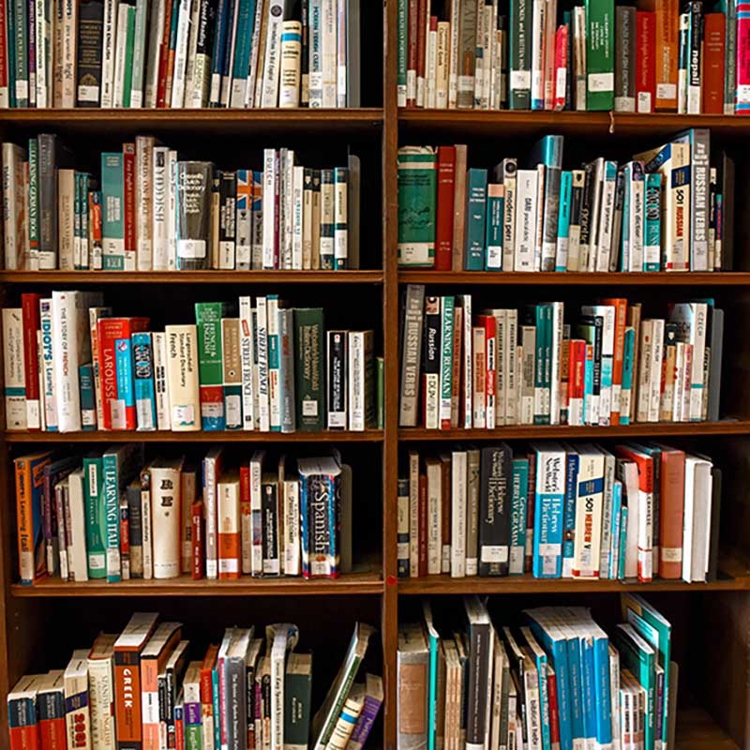
Through this programme you will become a member of the National Community for Research in Children's Literature (NCRCL), regarded as the premier institution for children's literature research in Britain.
The NCRCL has close links with organisations that further the study and teaching of children's literature, including The International Board on Books for Young People (IBBY), Seven Stories (The National Centre for Children's Books), and BookTrust.
The University is also the exclusive Creative Partner of Barnes Children's Literature Festival, London’s largest event dedicated to children's writing.
Applying
UK postgraduate students apply through our direct application system.
Specific entry requirements
A good second-class honours degree in English Literature, or a combined honours of English Literature plus another subject. If you have a degree in another discipline, please provide evidence of literary studies in your transcript or personal statement.
General entry requirements
September 2025 entry tuition fees (UK)
| Level of study | Part-time* |
| MA | £4,925 |
| PGDip | £3,285 |
*Year 1 fee
We offer a wide range of scholarships and bursaries. See our financial support pages for UK students.
We also provide other ways to support the cost of living, including on-campus car parking, hardship support and some of the most affordable student accommodation and catering in London. Find out more about how we can support you.
International postgraduate students apply through our direct application system.
Specific entry requirements
A good second-class honours degree in English Literature, or a combined honours of English Literature plus another subject. If you have a degree in another discipline, please provide evidence of literary studies in your transcript or personal statement.
General entry requirements
September 2025 entry tuition fees (international)
| Level of study | Part-time* |
| MA | £5,125 |
| PGDip | £3,420 |
*Year 1 fee
We offer a wide range of scholarships and bursaries. See our financial support pages for international students.
We also provide other ways to support the cost of living, including on-campus car parking, hardship support and some of the most affordable student accommodation and catering in London. Find out more about how we can support you.


